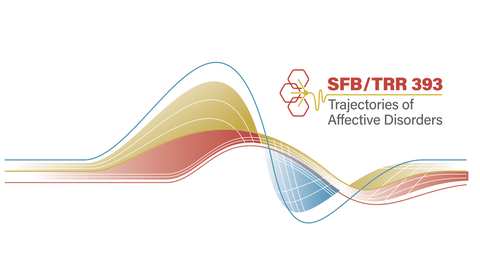Jun 02, 2024
Better understanding and treating affective disorders: DFG funds new Collaborative Research Center

„Verlaufsformen affektiver Störungen: Kognitiv-emotionale Mechanismen der Symptomänderung“
DFG funds new research initiative to investigate "Progression of affective disorders: Cognitive-emotional mechanisms of symptom change"
The German Research Foundation (DFG) has approved funding for the new research consortium SFB/Transregio 393 "Forms of affective disorders: Cognitive-emotional mechanisms of symptom change", which will begin its work on July 1, 2024. The consortium consists of interdisciplinary, clinical research groups and aims to better understand the course of affective disorders and the recurrence of episodes and their remission by investigating underlying cognitive-emotional mechanisms. The findings should open up the opportunity to develop innovative treatment approaches and implement them at an early stage in order to make the long-term course of the disease significantly less severe for patients in the future.
Over the course of a lifetime, around 20 to 30% of the population worldwide suffer from affective disorders, such as unipolar depression and bipolar disorder. These disorders are therefore among the greatest challenges for health policy in the 21st century, cause considerable impairment of psychosocial functioning and quality of life for those affected, also due to the early age of onset of the disease, and have far-reaching health economic consequences. The promotion of this interdisciplinary, clinic-oriented research initiative is therefore of great social relevance.
The Germany-wide research consortium is made up of nationally and internationally renowned scientists from the Philipps University of Marburg, the University of Münster and the TUD Dresden University of Technology. The DFG has approved funding of almost 14 million euros for the entire consortium for the funding period, with around 3.7 million euros going to the Dresden research location.
Prof. Dr. med. Dr. Esther Troost, Dean of the Faculty of Medicine at TU Dresden, emphasizes the importance of this research initiative: "Research into neurological and mental illnesses is an important focus of our faculty. Participation in the new SFB/Transregio 393 initiative underlines the excellent neuroscientific expertise of our interdisciplinary network of scientists."
Participating institutions and focal points of the research initiative
In addition to the three partner institutions Philipps-Universität Marburg, University of Münster and TUD Dresden University of Technology, the Karlsruhe Institute of Technology (KIT) and the Rheinische Friedrich-Wilhelms-Universität Bonn are also involved. Over the next four years, the course of symptoms in patients with affective disorders will be examined very closely, in particular the time immediately before and during the onset of new episodes of the disease. Among other things, continuous monitoring with the help of a smartphone app specially developed for this purpose will be used for this purpose. Progression parameters are described on a molecular, neuronal and behavioral level in order to understand the mechanisms for the recurrence of episodes, but also for recovery. Individual mechanisms are being investigated for their susceptibility to stress, for example, and therapeutic components are being tested to stop episodes of illness or shorten their duration. Innovative modeling approaches, such as machine learning, are used to better investigate the complex and dynamic interaction of influencing factors on the course of the disease.
Speaker
Prof. Dr. Tilo Kircher (Department of Psychiatry and Psychotherapy, Philipps University Marburg)
Prof. Dr. Andrea Pfennig (Co-Speaker, Carl Gustav Carus University Faculty of Medicine and Carl Gustav Carus University Hospital, TUD Dresden University of Technology)
Prof. Dr. Dr. Michael Bauer (Site Coordinator, Carl Gustav Carus University Faculty of Medicine and Carl Gustav Carus University Hospital, TUD Dresden University of Technology)
